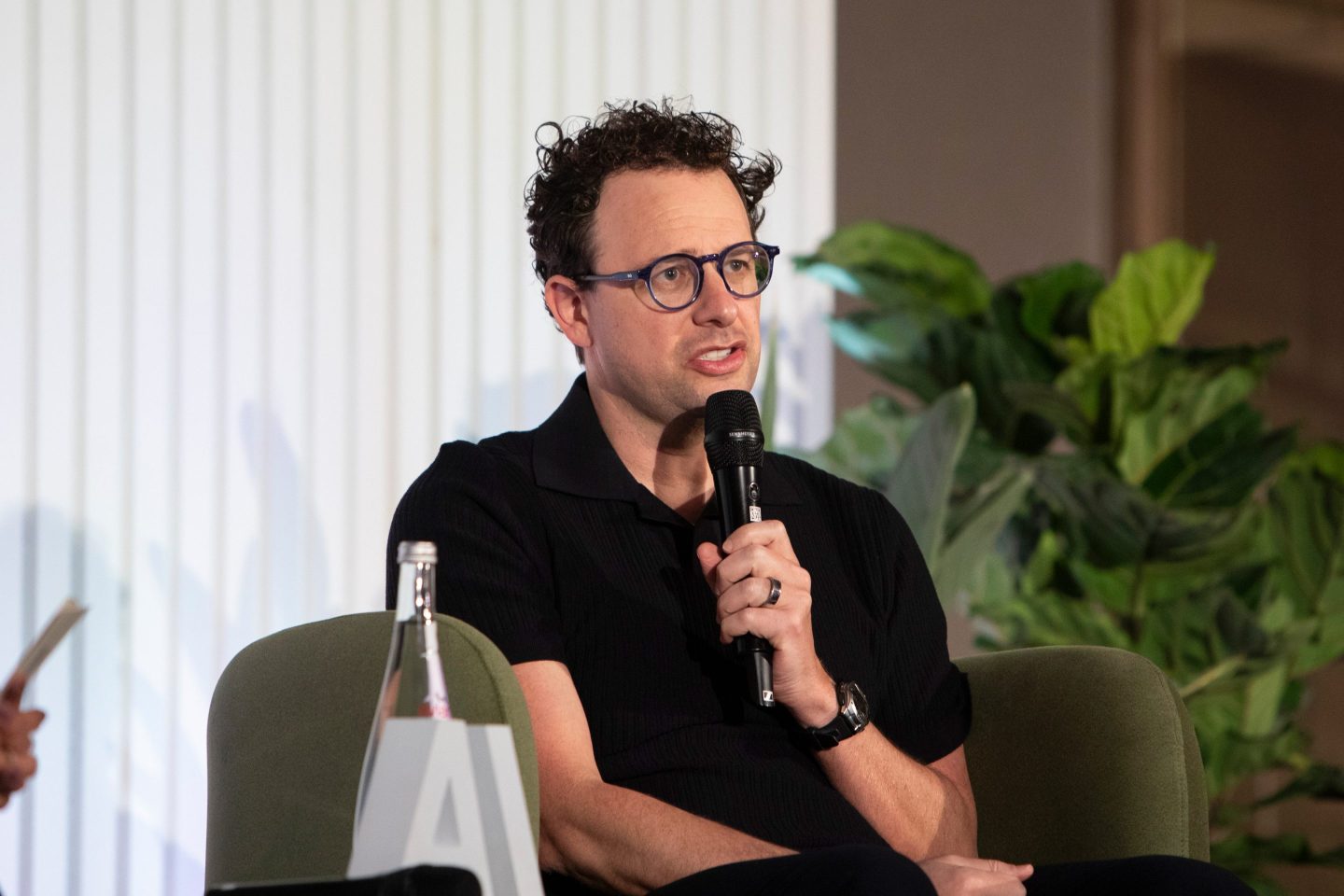A jazz musician by trade, Curtis Forbes received an invaluable piece of advice from his music school mentor decades ago that’s guided his professional journey ever since: Sometimes you must make the gig where there is no gig.
“It really struck me,” he recalls. “How else do you tell somebody to go be an entrepreneur? You can’t wait for an opportunity to appear—you create it, even if the conditions aren’t perfect.”
Forbes is the founder and CEO of MustardHub, an engagement and retention platform designed specifically for startups and small businesses. Besides promoting participation and accountability through collaboration and recognition, the scalable platform offers predictive intelligence that identifies workplace factors like attrition risk and promotional readiness to help small businesses reduce churn rates and build workplace cultures that last. While the platform is currently available as an open beta, most clients opt for MustardHub’s embedded solution, which is tracking 4,000 accounts by mid-January.
Forbes’s entrepreneurial journey emerged from the 15 years he spent on the jazz circuit, playing guitar and upright bass nationwide after graduating from Berklee College of Music. Having taught his own students along the way, he founded Forbes Music, a music education company that combines in-home and online lessons, in 2001. Things hummed along for years until the onset of the COVID-19 pandemic in 2020.
Unexpected opportunity
“When COVID hit, priorities shifted, especially for employers in education and in-person services,” Forbes says. “We realized that we couldn’t just keep people on payroll—we also had to keep them connected, motivated, supported, and engaged.”
Forbes and his team built an internal tool, based on proprietary software they’d already created to manage the company’s multi-location, largely part-time and contract staff teams, to incentivize, recognize, and reward Forbes Music employees. Given that many were contracted music teachers, they tied incentives not only to how many hours they taught, but also other metrics like student retention rates. Hitting target numbers then triggered rewards.
“We weren’t trying to replicate platform features from solutions already on the market,” he recalls. “The tools available then were all built for the enterprise world—they didn’t fit small businesses that had a mix of full- and part-time employees and contract staff. MustardHub grew out of things we were doing internally to solve these problems for ourselves.”
The impact proved significant: Turnover at Forbes Music fell 80% in year one, while revenue rose 42.5%. After adding additional features and further “productizing” the platform, Forbes launched MustardHub for the small and medium business (SMB) market in a phased deployment starting in 2023.
Scalable solution
MustardHub’s “freemium to premium” model means companies can sign up and access its core features—including recognition posts, messaging, and date-based celebrations—for free. During the intuitive onboarding process, administrators select their industry (which informs other choices on the platform) and “hubs”—flexible, customizable channels with their own feeds, where employees interact—“kind of like if Facebook Groups and Slack had a baby.” Companies can add as many administrators and users as they like, as there are no per-user fees.
Points—digital currency that administrators can purchase for leaders and peers to give and receive to reward effort, reinforce values, or say thank you for a job well done—comprise another core component of the platform.
“When companies buy points, they’re investing directly in their people,” Forbes explains. “They fuel the economy on the platform and strengthen behaviors and cultural signals that keep teams connected and engaged.”
Users rack up points by being recognized (by managers or colleagues) and recognizing others and redeem them in MustardHub’s marketplace for hundreds of branded gift cards ranging from Amazon to Wine of the Month Club. The platform also partners with retirement plan administrators and health insurance agencies within the marketplace, allowing employees to convert points to cash to contribute to their retirement and health savings accounts.
Blended workplaces with full- and part-time workers, independent contractors, and frontline workers—like those found in the hospitality, education, and health care industries—are prime MustardHub customers.
“The idea is that every worker can have a voice and a sense of belonging,” Forbes says. “It’s a purpose-built platform that scales with a company’s growth, and keeps people connected along the way.”
In addition to its free tier, MustardHub offers two subscription tiers at $50 and $120 per month that unlock a range of management and reporting tools, as well as AI-powered predictive insights into churn risk, retention strategies, and high-potential talent. Its white-label embedded solution integrates with over 280 software systems, complementing existing internal analytics and providing additional visibility into workplace dynamics.
“We introduced the freemium model so business owners could experience the platform without any financial risk, then we built a strong partnership channel with software partners like payroll providers and workforce management platforms, who embed our solution into their offerings,” says Forbes. “That turned distribution more into collaboration, which fuels our customer growth today.”
Advice for entrepreneurs
Besides the sage words of his music mentor, the best advice he received came from his father, during a phone conversation after Forbes took a 48-hour bus ride to audition at a music school without his parents’ permission.
“He said, ‘We live in the boredom of the time that followed, thinking of what once was and might have been,’” he recalls. “In other words, don’t live in the shadow of what-ifs, or waste time replaying alternate versions of the past. Make the decision, own the outcome, and move forward.”
Forbes has learned a few other lessons along the way.
“There’s really no place for ego—it’s a cancer to growth and development,” Forbes says. “The best ideas come from conversations, not hierarchy. I surround myself with people who are much smarter than I am, and I listen to them. The more you listen, the smarter your company gets.”
He also believes knowing your market trumps all.
“We talk a lot about product-market fit in startups, but I think the real challenge is understanding the market—you have to cultivate it first,” he explains. “Your job as an entrepreneur is to become an expert in your domain—to identify those gaps and see how the innovation can transform the space. Eventually, you should know your customers better than they know themselves. That’s where the meaningful products are born.”











